Join us Sept. 12 at Chicken N Pickle
RSVP for this free event! https://www.eventbrite.com/e/transit-oriented-drinks-tickets-701077159657
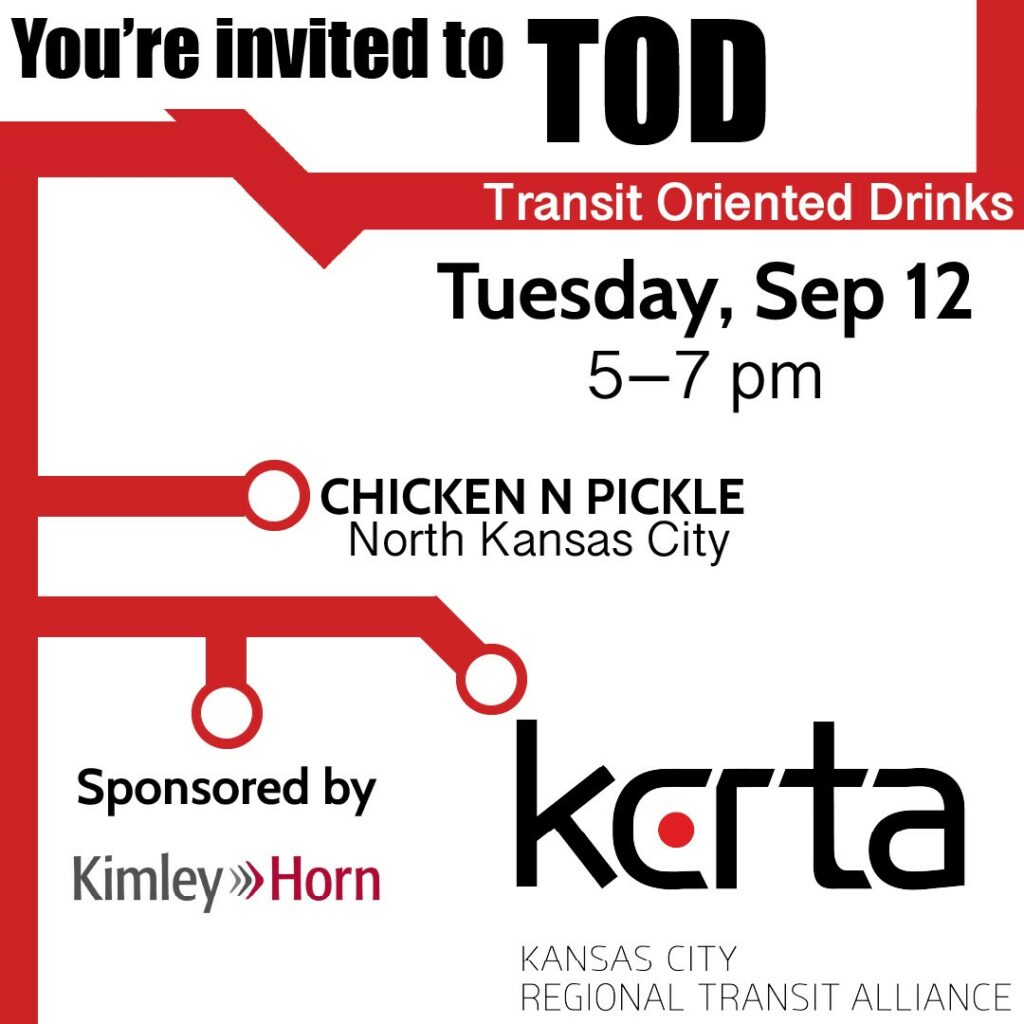
RSVP for this free event! https://www.eventbrite.com/e/transit-oriented-drinks-tickets-701077159657

Bowing to public pressure to avoid a revenue gap, the newly-seated City Council advanced the 3/8-cent citywide sales tax that supports bus service to the November 2023 ballot.
The original ballot language submitted by the Mayor’s office did not specify KCATA as the recipient or “bus” as the supported mode. Advocates asserted that there was no reason to dilute the language since there’s one regional provider for traditional bus service and it’s a bi-state government entity. Some feared redirection of funds for traditional bus service to other modes like streetcar or light rail, which the Mayor and City Manager have shown interest in with the impending World Cup in 2026.
If approved, the tax would continue for another 10 years. The last renewal was for 15 years, and was initially approved in 2003 for five years.
Given rising labor costs, it’s unlikely any growth in KCMO sales tax revenue would lead to expanded service. Our focus remains on regional funding to grow transit service — to increase access to jobs and address our changing climate.
Stay tuned here for information about how to support the renewal.
https://www.kcur.org/news/2023-08-18/kansas-city-voters-will-decide-whether-to-renew-a-tax-that-funds-public-transit-in-november
The City Council of Kansas City has run out the clock on putting a renewal of the 3/8-cent sales tax on the November ballot. This puts the revenue from the sales tax at risk since the next available election in April 2024 would occur shortly after the tax expires on March 31, 2024, leading to a potential gap in revenue that currently supports almost half of the city’s existing bus service.
The other transit sales tax (1/2-cent) was authorized by the Missouri Legislature and no longer has a sunset. A portion of the 1/2-cent tax is dedicated by law to KCATA’s capital needs (buses, facilities), with another portion being directed to the streetcar’s Transportation Development District.
Ordinance 230446 currently states that the target election date for the 3/8-cent renewal is August 8, 2023, which has obviously passed as of this posting. The deadline for the November 2023 ballot is August 29, 2023. Since the ordinance does not appear on this week’s Transportation Infrastructure and Operations committee meeting agenda, there will not be sufficient time to conduct a typical TIO hearing (the only opportunity for formal public comment), advance the ordinance to full council, and get full council approval before August 29. The Mayor and Council do have options to expedite ordinances, but there’s no indication that’s in the plan.
On top of all this, the TIO commitee has new leadership with the new Council that will be seated on August 1, 2023. Contact new TIO Chair Kevin O’Neill and Vice Chair Melissa Robinson here: https://www.kcmo.gov/city-hall/city-officials/city-council-members
KCRTA Chair David Johnson appeared on Sunday’s episode of KMBC’s “Heart of the Matter” public affairs program to discuss current governance and funding challenges in the Northland that led to changes with bus service in Gladstone. Watch here: https://youtu.be/9oSGtxlHp6M
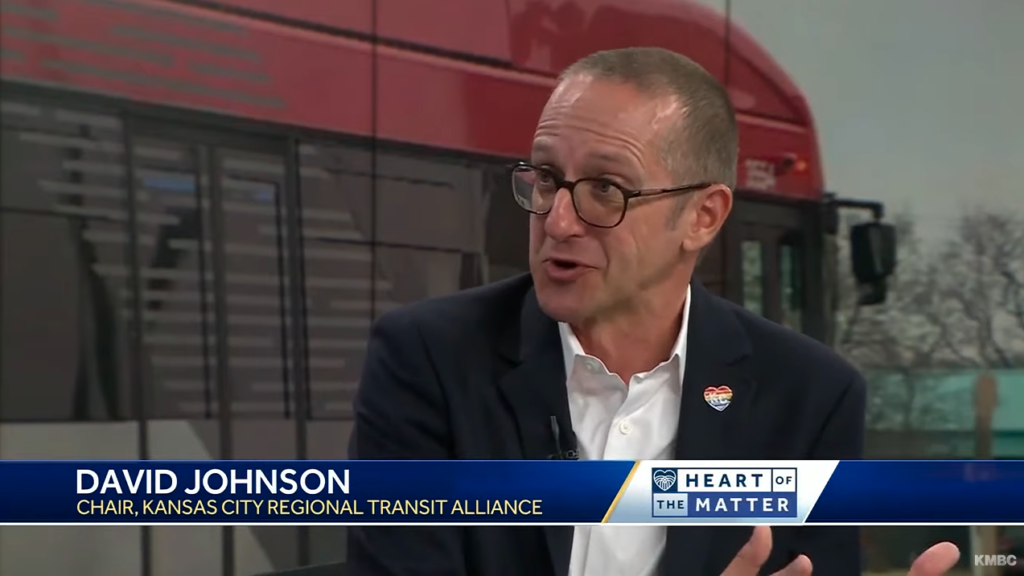
We’ve welcomed several new board members this year from all across the metro, including business and labor leaders and elected officials.
Join us at a cozy spot along the future Main Street streetcar extension to talk the future of transit in KC, the next steps for KCRTA, and to recognize our Transit Advocate of the Year.
RSVP here: https://www.facebook.com/events/1808728912804883/
The Kansas City Regional Transit Alliance supports the Black Lives Matter movement. We recognize our own failures to adequately address issues that perpetuate systemic racism within our own organization and within our community.
Color-blindness is not an appropriate or adequate lens through which to view public transit or transportation advocacy, and we vow to acknowledge and confront inequities in ways we have failed to do so in the past.
Our region’s failures to keep our citizens safe from traffic violence disproportionately impact black communities. We are dedicated to pushing for Vision Zero, with a goal of eliminating traffic deaths.
Without dedicated funding for transit on a regional level, access to jobs and opportunity is imperiled. Our black neighbors are most dependent upon transit to bridge this gap, making this a serious issue of equity that must be acknowledged. Further, we will fight for zero fare transit to ensure access for all.
We condemn the senseless murder of Mr. George Floyd and many others at the hands of the police who are sworn to serve and protect them. Acknowledging this damaged trust, we encourage our region’s transit agency partners to examine their policies around security and their relationships with police to ensure that everyone feels welcome on transit.
Black Lives Matter. Together, we can build a transportation system that reaffirms that.
The City of Kansas City, Missouri city council adopted Resolution No. 200019 on May 14, 2020, setting in motion a comprehensive effort to eliminate traffic violence by 2030. The City Manager is now charged with establishing a Vision Zero task force to collect the necessary data to help identify and prioritize opportunities for immediate action.
The Kansas City Regional Transit Alliance applauds this policy as it is essential to ensure that everyone has the ability to safely move around our city, no matter how you travel. We supported this effort from the very beginning and presented to the joint council committee who reviewed this resolution.
We will look forward to continuing to support Vision Zero in Kansas City, Missouri and across the region with our elected leadership, cities and counties, partners and stakeholders.
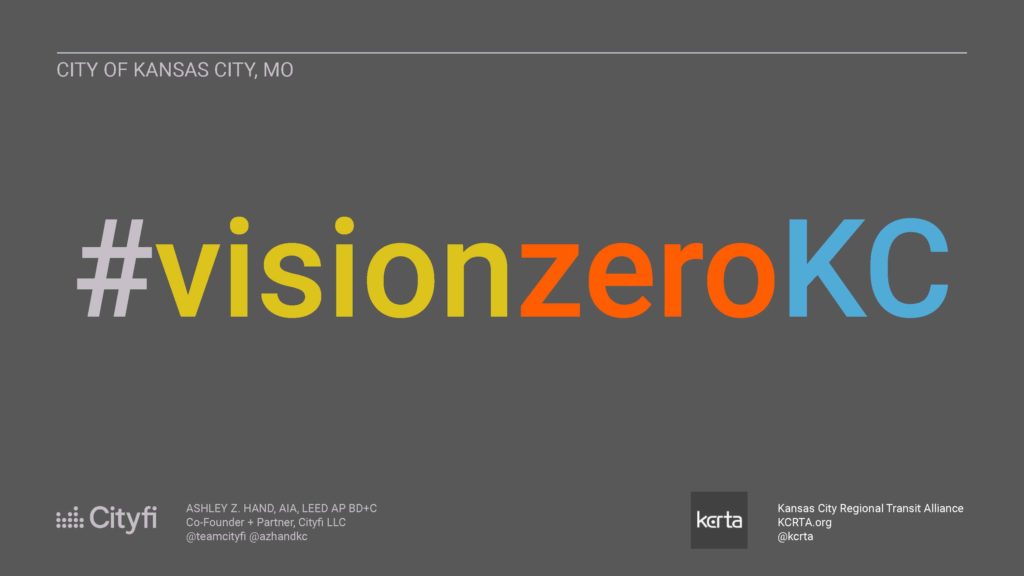
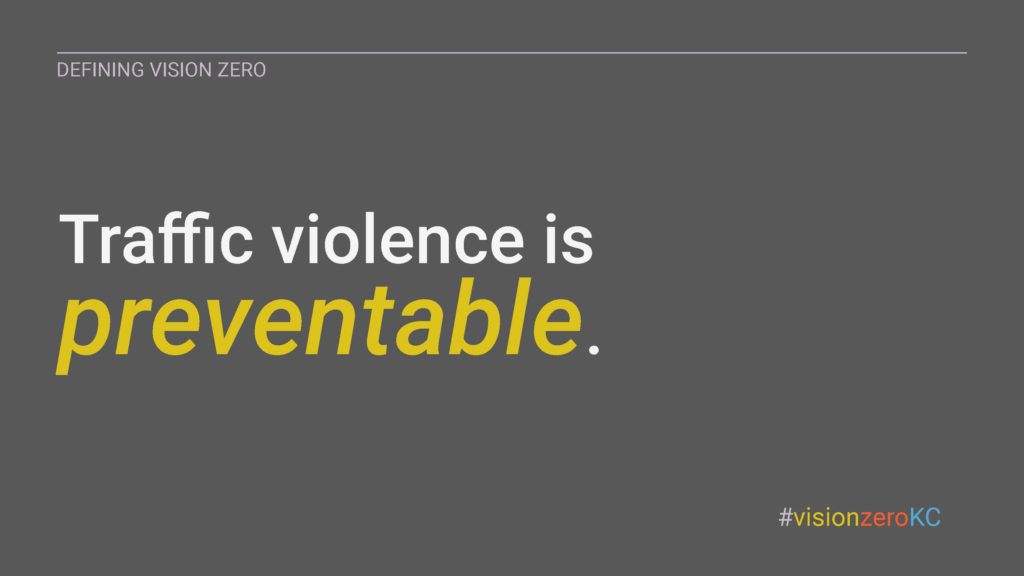
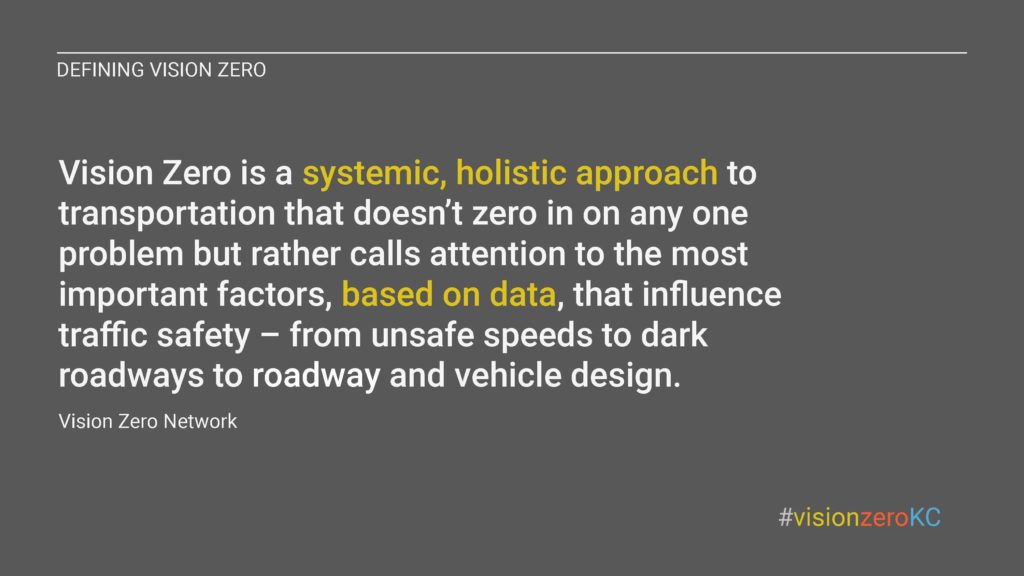
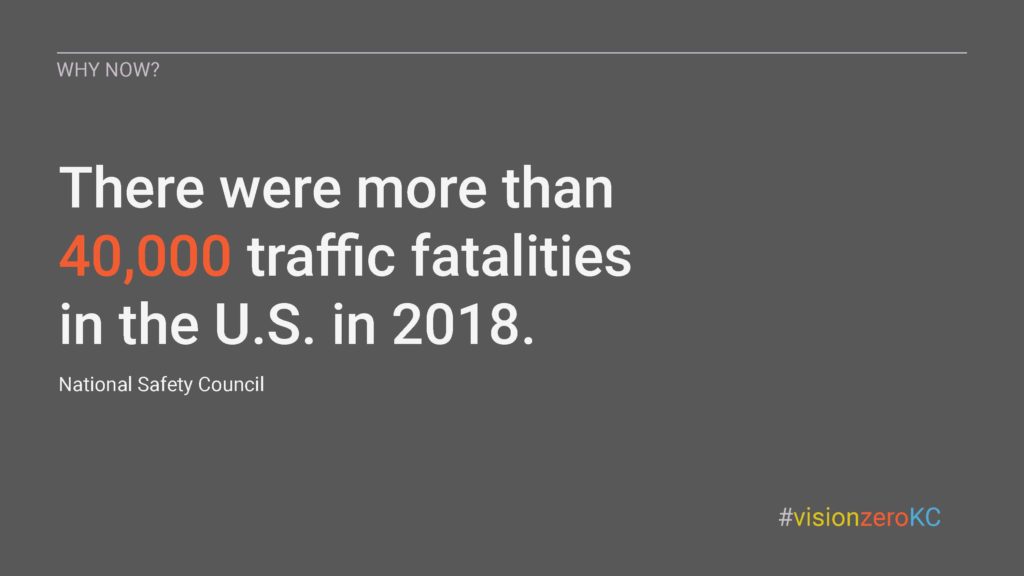
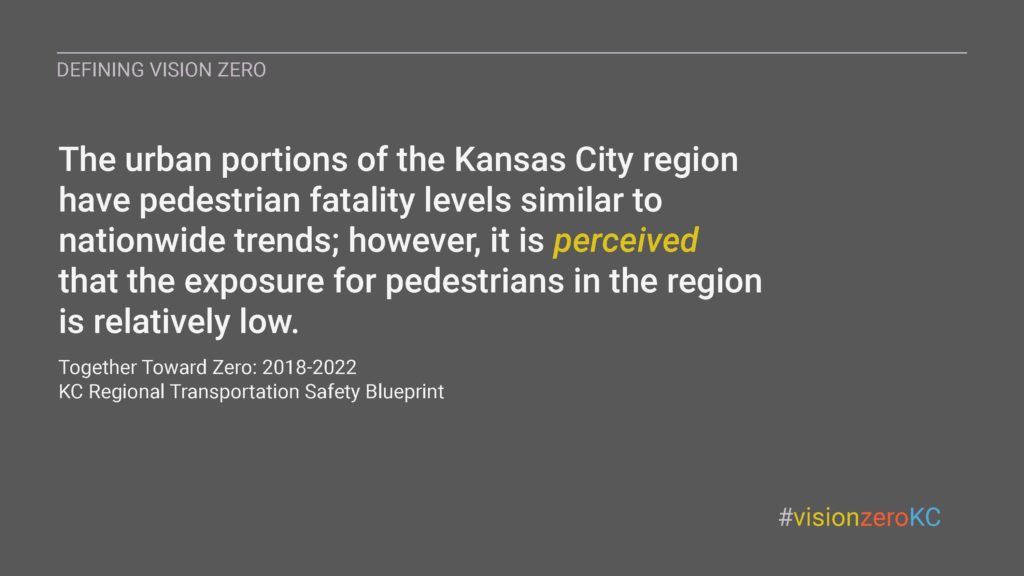
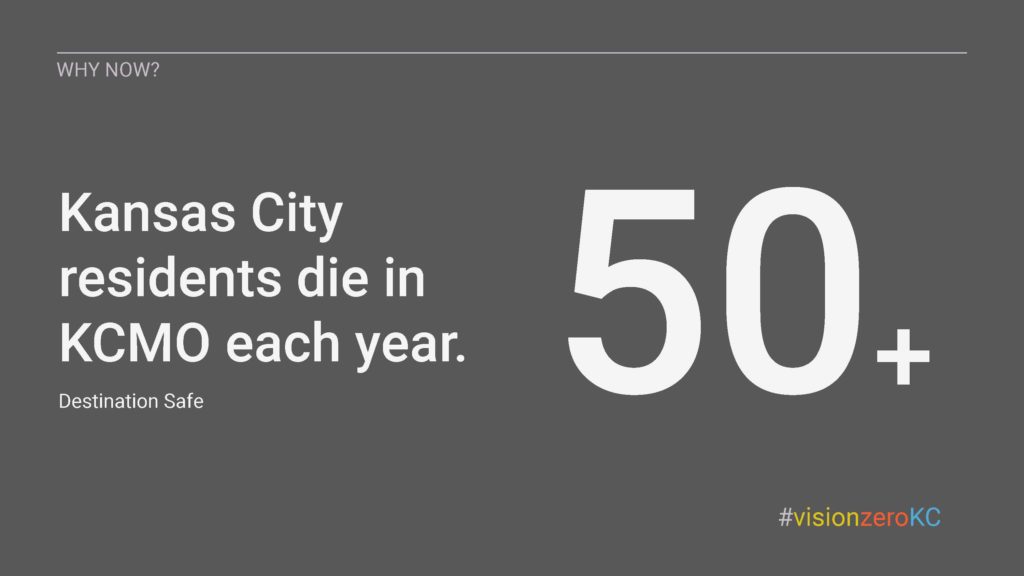
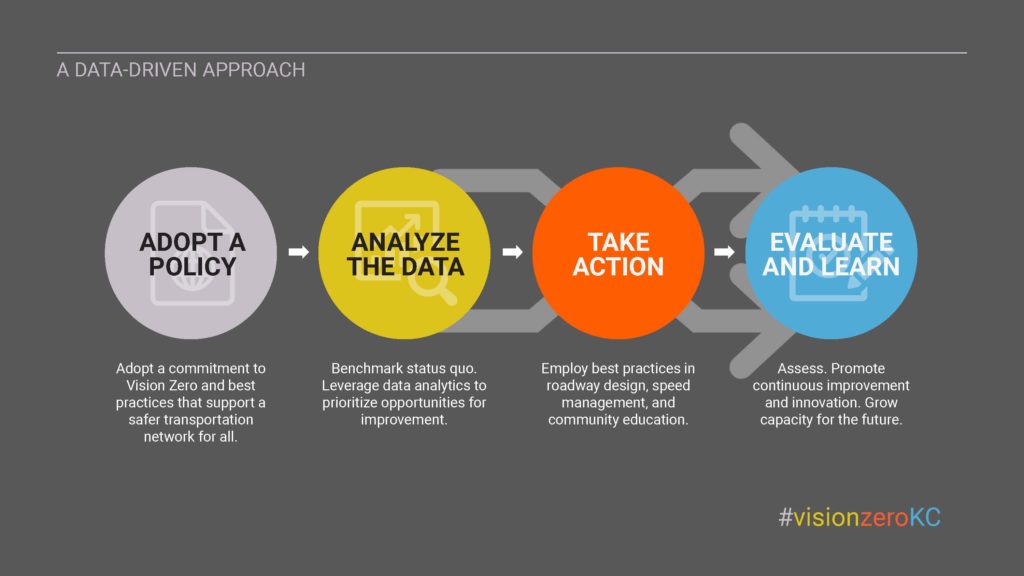
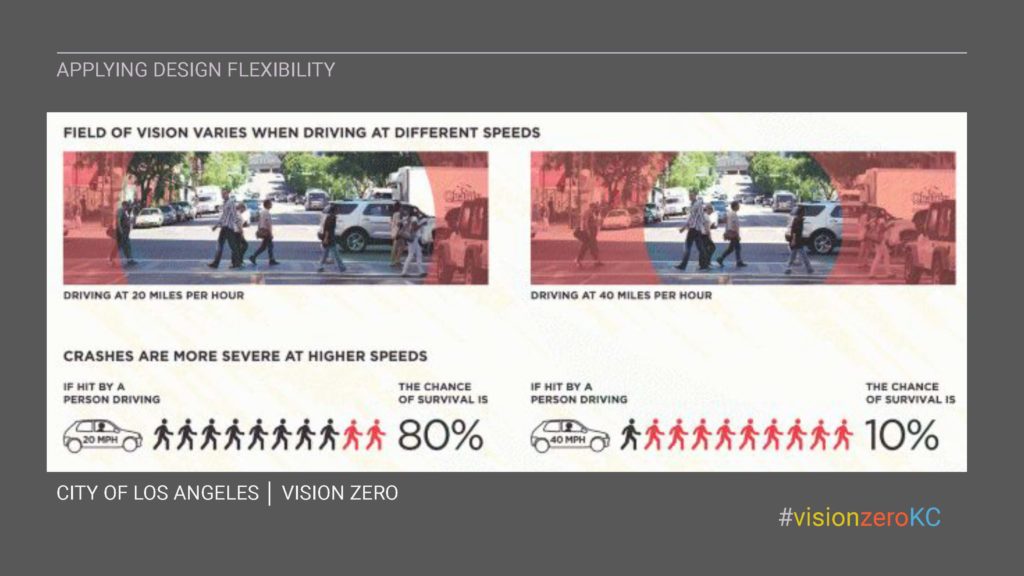
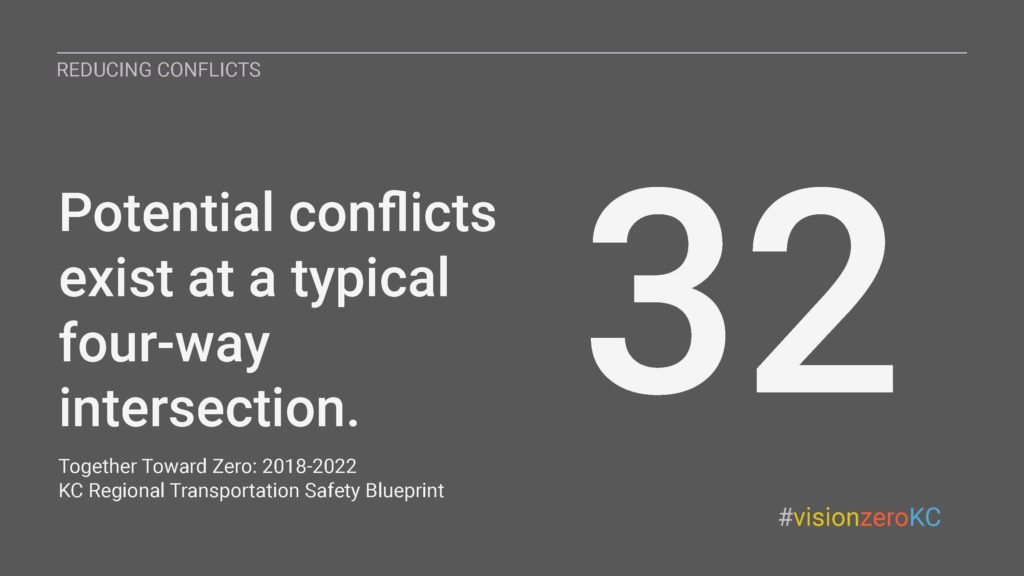
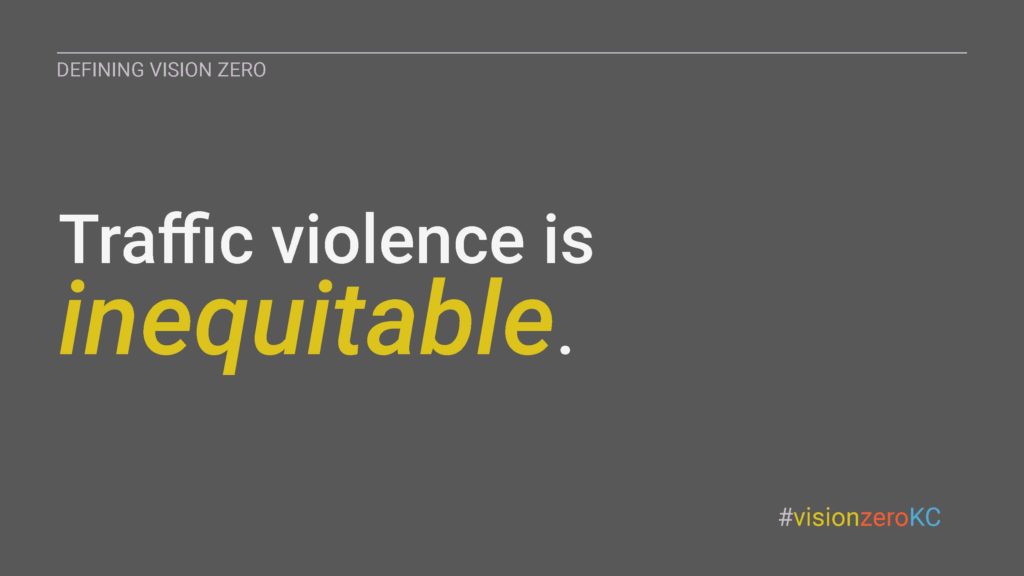
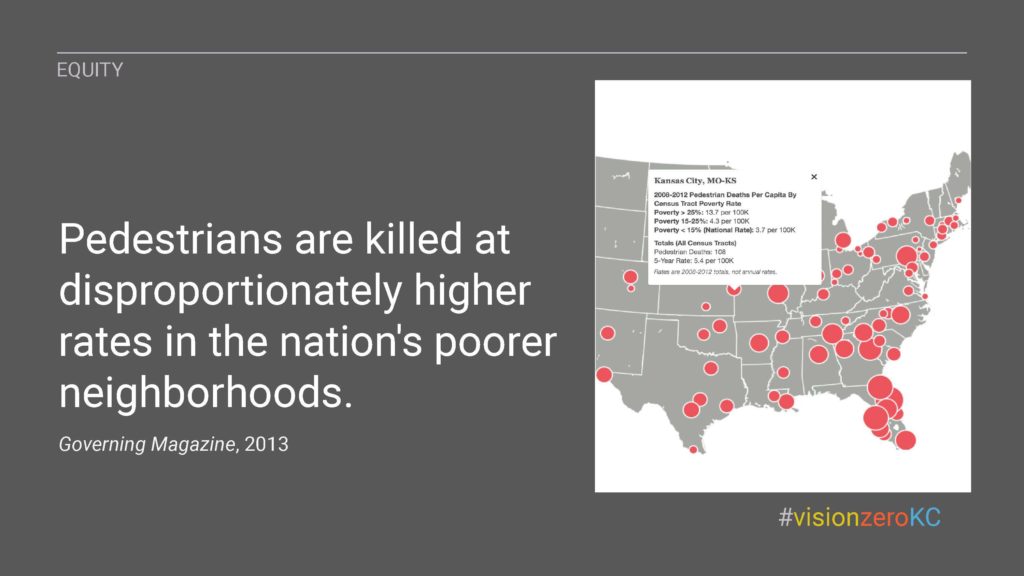
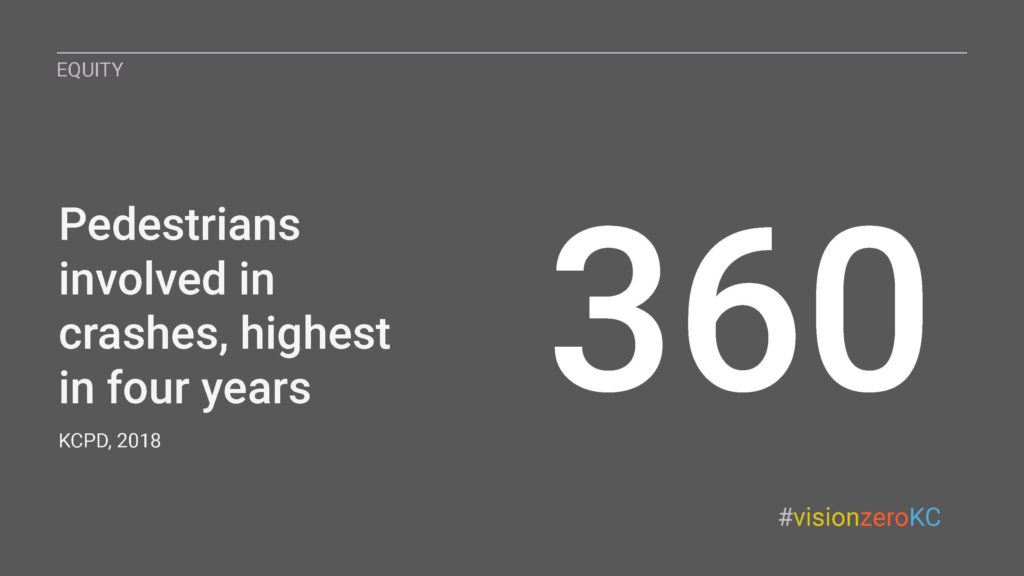
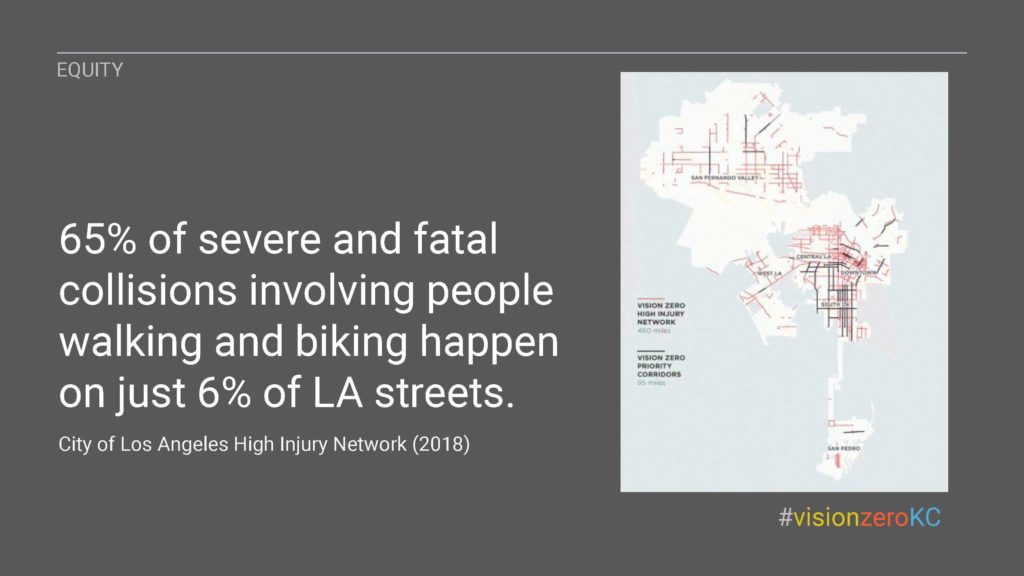
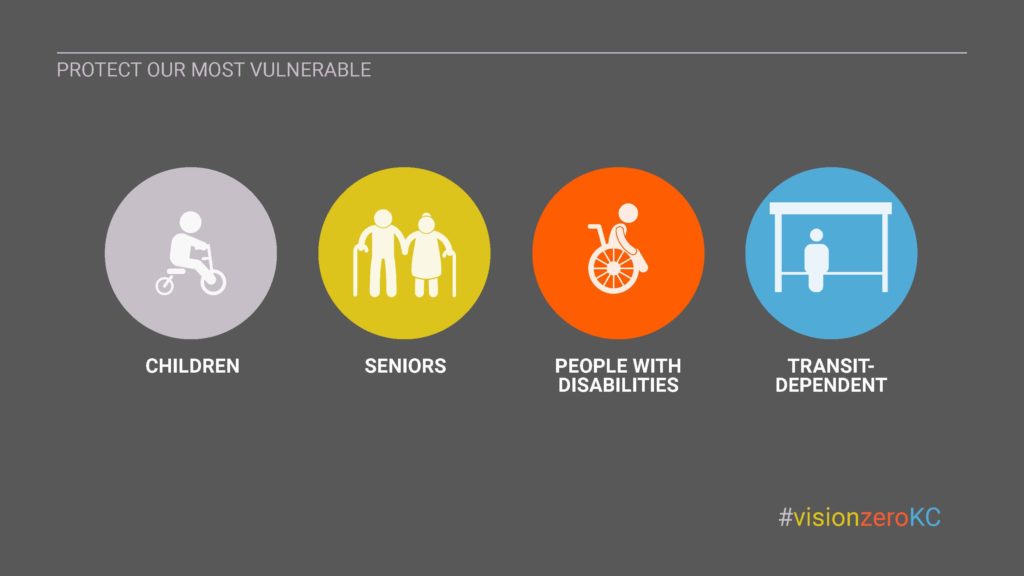
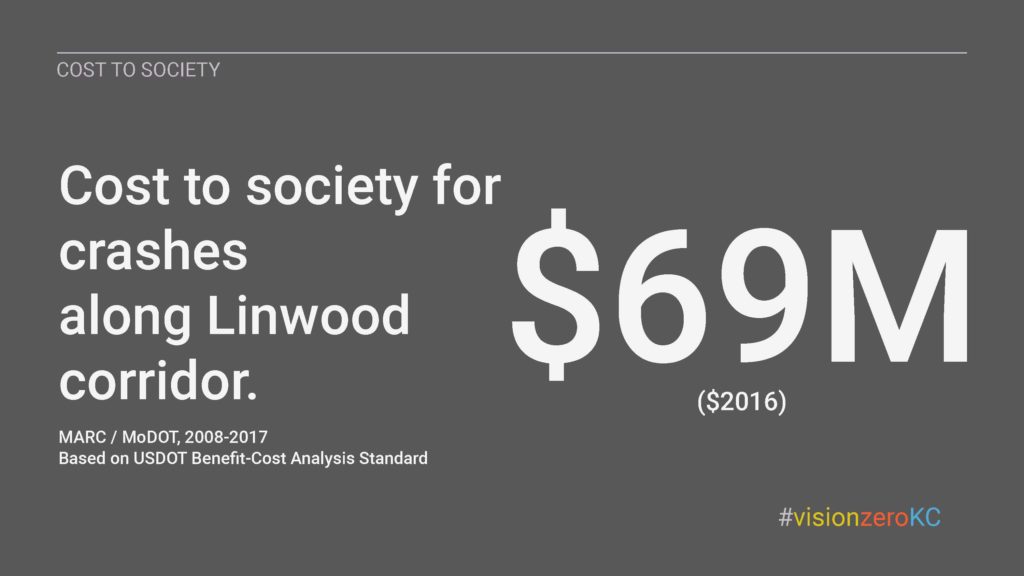
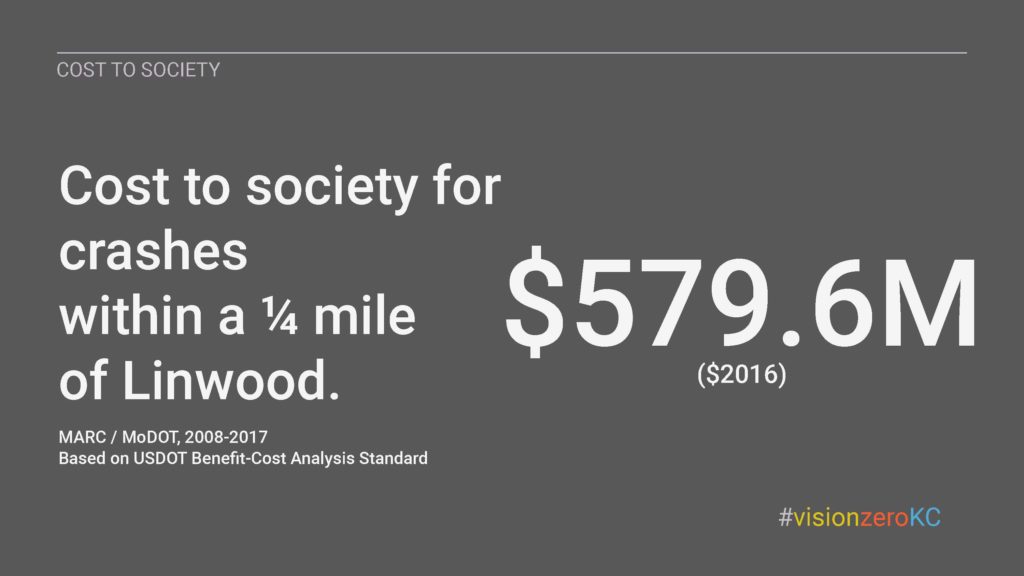
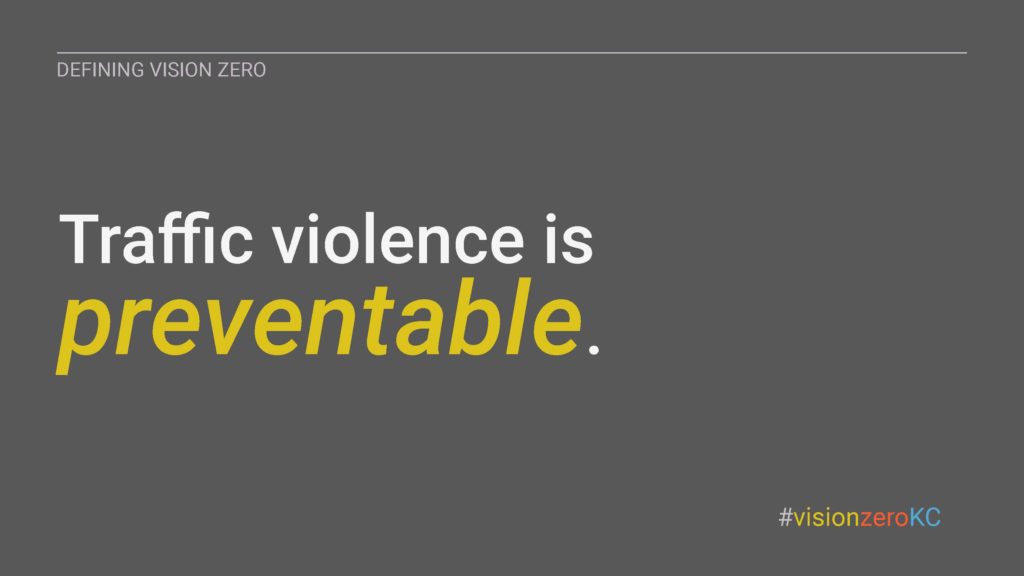
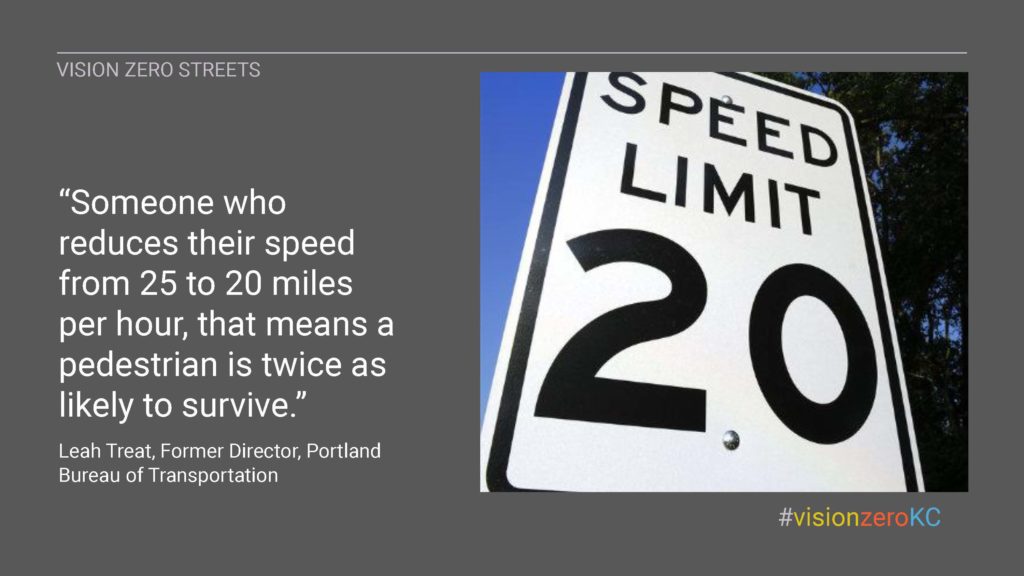
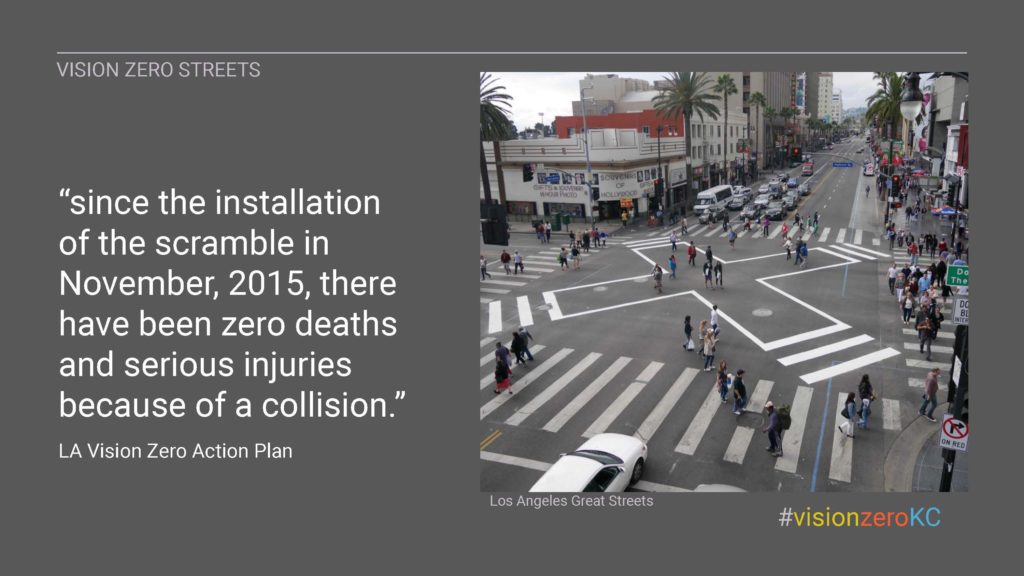
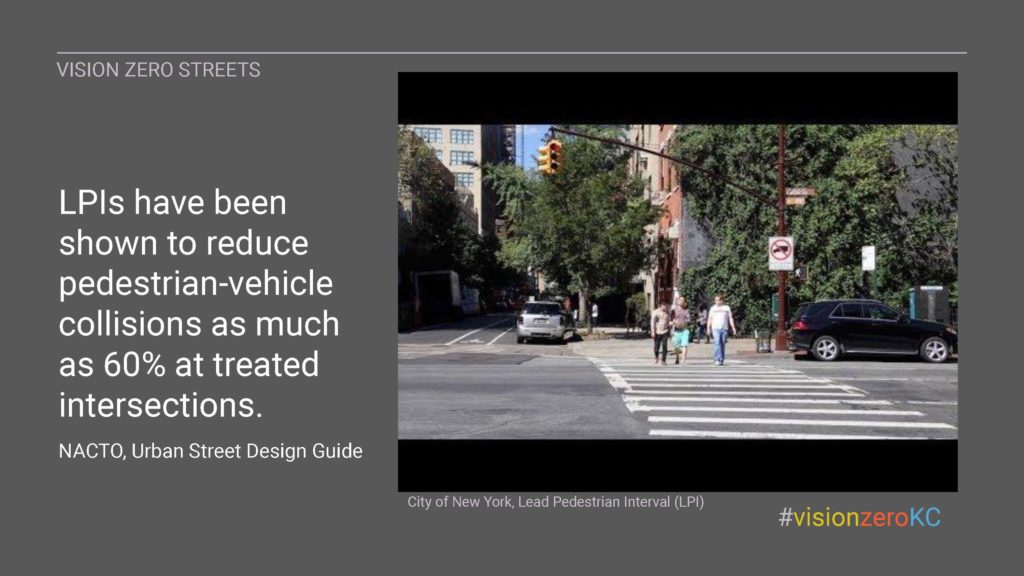
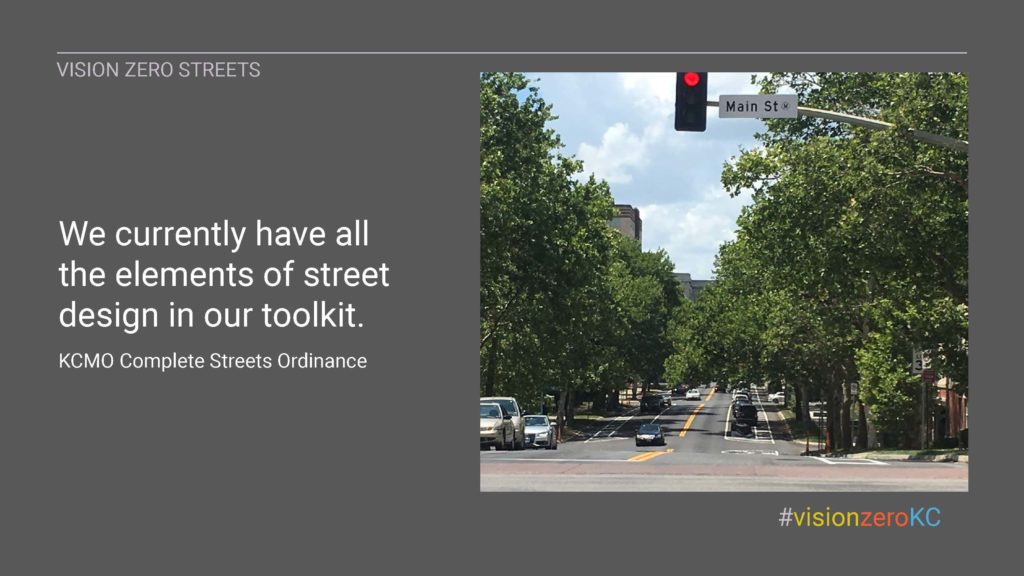
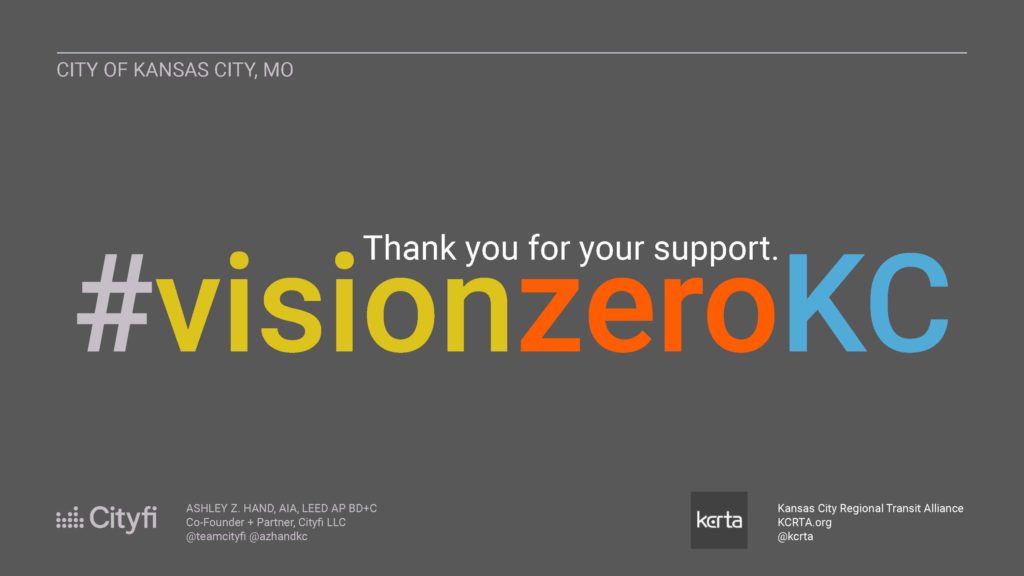
At the May 2020 board of meeting, the Kansas City Regional Transit Alliance adopted its 2020 strategic action plan outlining three key priorities:
This organization is now in its 20th year and we recognize that much has changed in the world around us. New modes and services are available, technological innovation has accelerated, and the need to build resilient, sustainable services is more important than ever. Even before COVID-19, we have support public transit as an essential service, critical to keep our region moving.
Please check out our 2020 priorities and look forward to more ways to get involved in supporting regional transit.
Today there is a resolution before the Kansas City, Missouri Transportation & Infrastructure committee to consider the adoption of Vision Zero as a policy. The KCRTA has been actively advocating for such a policy in KCMO and across the region and we’re eager to support KCMO in its effort to make the roads safer for all users. Outlined herein is our formal position on Vision Zero; the KCMO resolution is a start but we have a long way to go and we’re here to help.
The Kansas City Regional Transit Alliance (KCRTA) supports regional adoption of Vision Zero because it will make our roads safer for transit riders and all road users. Vision Zero will enhance regional accessibility and quality of life for all, particularly our most vulnerable populations. KCRTA believes a regional approach is necessary to not only help with the standardization of data collection and reporting, but to help leverage best practices, action planning, potential funding, and implementation as Kansas Citians do not live their lives within a single jurisdiction. The KCRTA will support Vision Zero through advocacy and partnerships that encourage the adoption of policies, convene stakeholders to support action plans and projects, and through celebrating the success of jurisdictions as established goals are met.
Every year in the United States, more than 40,000 people are killed on our streets and thousands more are injured. Nationwide, the numbers are disheartening:
Without proactive intervention, the problem is likely to get worse before it gets better. Americans are driving more, with 3.225 trillion miles driven in 2018 (FHWA, 2019), and distractions have increased as the number of personal technology devices quintupled between 2010-2017 (American Driving Survey, 2016-2017).
While the complete landscape of safety is not clear because of fragmented data collection and public information on traffic violence, the staggering truth is that Kansas City currently ranks tenth in the nation with the most speed-related fatalities; these deaths are entirely preventable. In 2018, Kansas City failed to meet targets for reductions with 251 fatalities. This was a 14% increase from the five-year YTD average, with Jackson County leading with 89 deaths; Clay County with 26 deaths; and Johnson County with 23 deaths (Destination Safe Coalition, 2018 Quarterly Fatality Report). Kansas City also has 64 of the 200 most dangerous intersections in the state. Every single death and injury comes at a considerable cost to our region, with both considerable individual and societal impacts. This traffic violence ultimately creates a fearful and unsafe environment where Kansas Citians lack true freedom of mobility, discouraging transit users, cyclists and pedestrians. Traffic violence is a pressing, but preventable public health issue that is adversely shaping our quality of life in Kansas City.
Vision Zero is a multi-dimensional framework to eliminate all traffic fatalities and severe injuries, while increasing safe, healthy, equitable mobility for all. “Vision Zero acknowledges that many factors contribute to safe mobility — including roadway design, speeds, behaviors, technology, and policies.” As a strategy, Vision Zero has been successful in Europe, starting with Sweden in the 1990s, and has been adopted in cities across the United States to proactively address traffic violence. It values the importance of safety for all people to move in their community and focuses on a shared responsibility by both system designers and policy makers to ensure safe systems. The cities that have adopted Vision Zero publicly acknowledged that the status quo is no longer acceptable and are actively working to improve leadership, collaboration, and accountability to address traffic violence with every public realm decision.
Vision Zero begins with policy adoption by jurisdictions across the Kansas City region, supported by diverse stakeholders, including transportation professionals, policymakers, public health officials, police, and community members. These policies should include a clear, time-specific commitment to the goal of improving road safety for all users. Since Kansas Citians do not live their lives within one city or county, it is important to have broad regional adoption and collaboration.
Upon adopting Vision Zero, many U.S. cities have found through data collection and analysis that traffic violence disproportionately impacts our most vulnerable communities who rely on transit, walking or cycling to move around, as well as children and the elderly. Vision Zero should be supported by a region-wide data approach to understand trends and identify areas of greatest need for improvement and complemented by a commitment to equity and community engagement. Culminating in local action plans, local jurisdictions can begin working towards reducing traffic violence by curbing speeds, improving roadway design, and educating communities on road safety.
The KCRTA supports the adoption of Vision Zero region-wide because it will enhance and improve safety for all transit users and all Kansas Citians for better regional mobility. In its commitment to Vision Zero, the KCRTA will commit to the following actions: